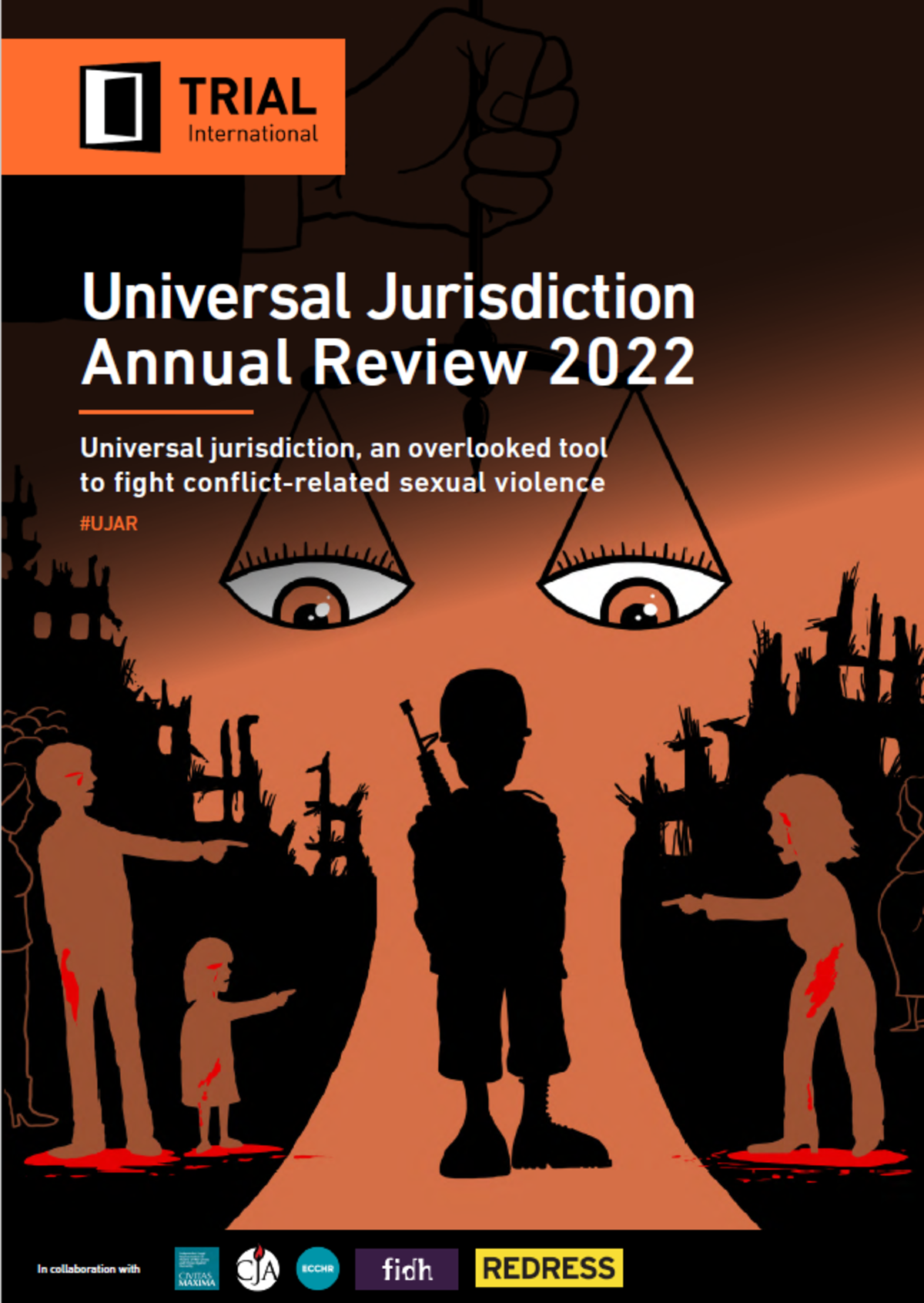Broschüre
2022
With developments seen in more than 60 cases across 16 jurisdictions, the year 2021 highlights the growing importance of universal jurisdiction within international justice. While welcoming the rise of universal jurisdiction cases, this year’s UJAR highlights the additional efforts needed to bring justice to victims of conflict-related sexual violence A powerful tool to fight against impunity for international crimes, universal jurisdiction should serve as an effective legal procedure for victims of conflict-related sexual violence. Unfortunately, when it comes to sexual violence, this is not yet the case in practice. Out of the 125 charges of international crimes included in the 2021 edition of this report, only 17 addressed conflict-related sexual and gender-based violence. The UJAR 2022 provides an explanation as to why and how universal jurisdiction can become a more effective instrument to bring justice to the victims and survivors of these crimes.
Universal jurisdiction: Justice beyond borders
The UJAR 2022 further documents cases brought under universal jurisdiction for international crimes, including genocide, war crimes and crimes against humanity, for which proceedings have been initiated by judges or prosecutors across the planet and which have undergone developments in 2021. In total, 125 international criminal charges were brought under universal jurisdiction, including 34 charges for war crimes, 66 for crimes against humanity, 25 for genocide. Only 17 charges were brought for conflict-related sexual violence.
Whether it concerns crimes committed during the genocide in Rwanda, during the war in Syria, or even during the Jammeh era in The Gambia, domestic prosecuting authorities, thanks to universal jurisdiction, have an effective means at their disposal to ensure the accused face their actions, and thus allow the voices of the victims to be heard.
Universal jurisdiction: An overlooked tool to fight conflict-related sexual violence
As a now established legal principle, with a recognized contribution to the fight against impunity, universal jurisdiction does not yet seem as effective in practice in regard to the prosecution of conflict-related sexual violence. After centuries of almost compete invisibility and neglect, sexual violence crimes – such as rape, forced sterilization and nudity, sexual slavery – are now increasingly documented and prosecuted. For example, in 2021, several cases related to universal jurisdiction included convictions for crimes of sexual violence, as seen in the verdicts against Syrian Colonel Anwar Raslan in Germany and Liberian warlord Alieu Kosiah in Switzerland.
Despite this progress, conflict-related sexual violence is still too rarely investigated and prosecuted in universal jurisdiction cases. This can be explained by several factors, including the fact that these crimes are often not integrated into investigative strategies and, when they are prosecuted, they have often been qualified as acts of torture. However, this legal qualification of sexual violence as acts of torture fails to fully reflect the implications of such violence as both a weapon of war and a deeply harmful social tactic which aims to weaken the social fabric of vulnerable communities. In addition, it should be noted that the testimonies of the victims are key to prosecuting these crimes. However, the risk of adding to the victims’ trauma and the stigmatization to which they expose themselves by testifying illustrate the need for specific training of judicial professionals to conduct these interviews.
This publication was researched and produced by TRIAL International. It benefited from the generous support of the Oak Foundation, the Taiwan Foundation for Democracy, UKaid and the City of Geneva. It was compiled in collaboration with Civitas Maxima, CJA, FIDH, REDRESS and ECCHR.


